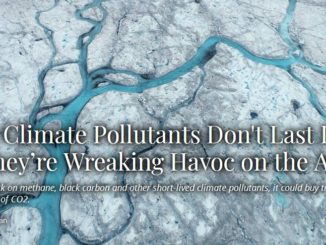
Fracking has been hailed as an energy miracle in the US, yet globally it faces blocks and even bans. Adam Vaughan explains what it is and why it is so controversial
What is fracking?
Hydraulic fracturing, or fracking as it is better known, is a method of extracting oil and gas trapped in shale and other rock formations.
The modern version involves pumping large amounts of water down a well at high pressure, along with sand and chemicals that make up a tiny fraction of the volume. Together, this “stimulation fluid” fractures the rock and releases the gas or oil, which flows to the surface. The hole drilled for a well is about the size of a manhole cover.
As the UK industry body explains, the sand is there to keep fractures in the rock open. The chemicals are included for several purposes, such as lubrication and keeping bacteria out.
The other big technological development that has made fracking economical is horizontal drilling. This means that several horizontal boreholes can be drilled off one well, like tributaries off a river, maximising the amount of oil and gas that can be recovered. This spring, either Third Energy in North Yorkshire or Cuadrilla in Lancashire will become the first company to frack in the UK since 2011.
Fracking can also be undertaken on a well that has already been drilled and for which conventional techniques were unable to extract more hydrocarbons.
What chemicals are used?
Under UK regulations, operators have to submit a list of the chemicals they will use to the Environment Agency, or they will be refused consent. In the UK, one of the most commonly used chemicals is diluted hydrochloric acid. A government expert told the Guardian that in the case of a leak, the risk from the chemicals used is “very low”. In the US, the Environmental Protection Agency found a median of 14 chemicals for each sample it took. The most common were methanol (an alcohol), hydrochloric acid, and hydrotreated light petroleum distillates (a combination of hydrocarbons).
Who pioneered fracking?
Fracking transformed the US energy landscape, putting the country on course to becoming a net exporter of oil after output declined over the last three decades of the 20th century. That trajectory means it is now starting to create similar shockwaves globally.
The modern version of fracking came of age in the late 1990s, unlocking oil and gas reserves across more than 20 US states. As a result, US oil production has increased faster than at anytime in the country’s history, dwarfing the giddy days of the country’s black gold rush in the 19th century. About half of US crude now comes from fracking.
The US now has so much oil and gas that it has dropped a decades long embargo on exports and is looking to step up shipments.
Dr Fatih Birol, executive director of the International Energy Agency, said the US is on course to become the world’s undisputed oil and gas growth story – and it’s because of fracking.
“What is happening in the US between now and 2025 [is] a huge expansion of oil production, about 80% of the global oil production growth comes from the US. It exceeds the huge expansion of Saudi Arabia which we witnessed in the 1960s and 70s,” he told the Guardian.
Where else is fracking taking place?
For several years, Europe was talked up as a new frontier for shale exploration. Poland was seen as one of the most promising prospects, attracting US companies such as Chevron, ConocoPhillips and Exxon, as Warsaw hoped to ease its reliance on Russian gas. But the geology did not prove as promising as hoped and, one by one, companies pulled out. A similar pattern occurred in Romania.
Other European countries have gone further and banned fracking: France, Germany and Ireland have all imposed moratoriums.
Despite bans in every part of the UK apart from England, the country now stands as one of the last parts of Europe where fracking firms are still actively drilling and hoping to frack.
While no well has been fracked since 2011 due to a moratorium, regulatory changes and planning delays, at least three sites look likely to be fracked in 2018.
But even that new wave of activity looks fragile, with the sector at risk from any change in government. The SNP banned fracking in Scotland, while the 2017 election manifestos of Labour, the Liberal Democrats and Greens all promised fracking bans.
The governing Conservative party still officially backs fracking, but has lately been much quieter in its support, with some MPs even questioning if there is still a need for it, and Conservative-controlled local authorities rejecting shale drilling applications.
The right geology is key to success. The British Geological Survey found the best shale oil prospects are in southern England, in the Weald Basin between the North and South Downs. For gas, the group said the best resource appears to be in the Bowland shale, which stretches beneath much of Lancashire and Yorkshire.
On the other side of the world, the industry has largely stalled in Australia.
Concerns over scarce water supplies have seen five of the country’s eight states and territories essentially temporarily banning fracking. The federal government wants to see the bans dropped, but polls have found 49% of Australians support the fracking ban in their state, compared to 24% against it.
Elsewhere in the southern hemisphere, South Africa and Argentina have both been eyed by fracking companies. But, as in many other parts of the world, neither country is yet to see a serious exploration and appraisal phase.
Why is fracking so controversial?
The UK government has repeatedly said that fracking can be done safely and without harming the environment or human health, so long as it is properly regulated. New rules mean that companies have to closely monitor and report seismic activity, as well as potential water and air pollution.
But that’s not been the case throughout fracking’s history, particularly during some of the ‘wild west’ years when it grew rapidly in the US.
Most of the cases of water pollution in the US have involved boreholes that were not built properly, or mishandling of wastewater. Images of burning taps in the 2010 documentary Gasland arguably turbocharged the anti-fracking movement in the US, even though cases of gas contaminating water supplies have been hard to prove.
What are the other concerns?
Earthquakes caused by hydraulic fracturing have been another big concern. Whilethe two earthquakes in 2011 that led to the UK’s fracking moratorium were both ranked minor on the Richter scale, the US has experienced much stronger ones. In Oklahoma, experts have reported a millennium’s worth of quakes in two yearsbecause of fracking there.
Other local concerns listed by fracking critics include industrialisation of rural areas, noise from lorries and the air pollution impact from flaring, when excess gas is burned off.
The big picture issue, of course, is climate change. Fracking advocates have argued the technology is good for global warming because, at least in the US, gas has been displacing coal in the power mix.
But that coal is usually still burned elsewhere in the world, meaning fracking is simply adding to fossil fuel supplies – and the stock of greenhouse gases in the atmosphere.
The UK government was warned last year by its climate advisers that, without stricter rules, fracking on a large scale would bust the country’s legally-binding carbon targets.
It is this combination of local and global concerns that has galvanised a vocal, well-organised anti-fracking movement, including public figures such as authorNaomi Klein and actor Mark Ruffalo.
What does the future hold?
After years of delays, whether fracking in the UK ever takes off remains to be seen, but industry claims America’s continued progress will help them. UK-based iGas, which plans to frack one well and drill several others in 2018, told the Guardian it is taking advantage of advances in technology made in the US.
In the short term, fracking looks likely to stay as a largely American story, unless China decides to seriously invest in extracting its vast shale gas reserves, which are estimated to eclipse those in the US.
“What is happening in the US is all driven by the shale revolution,” said Birol. That revolution will have profound ramifications around the world for years to come, from Europe’s reliance on Russian gas to US foreign policy and headaches for the oil cartel, Opec.
Visits: 1




Be the first to comment